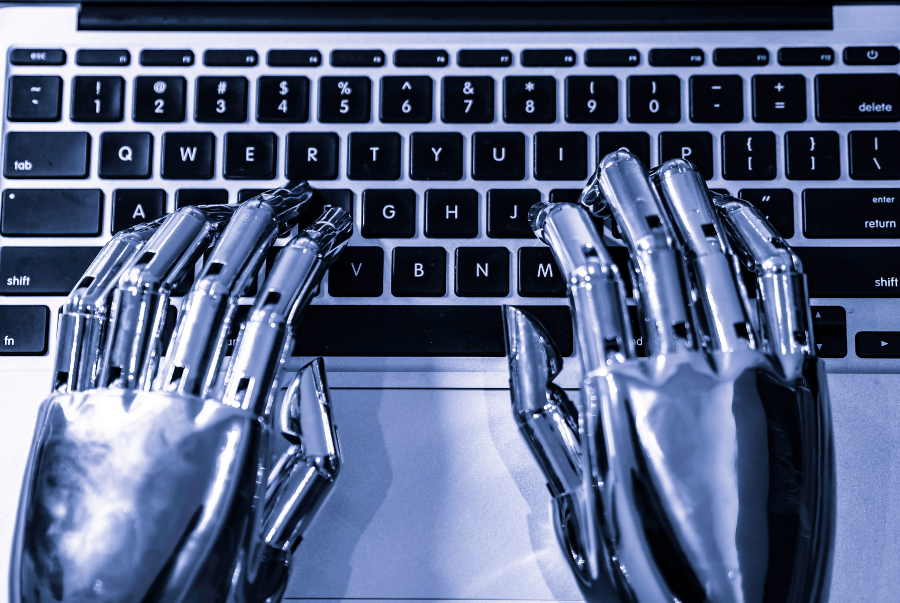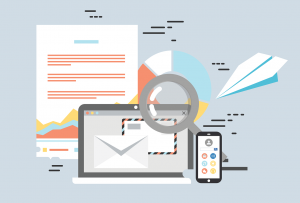Artificial Intelligence (AI) is transforming the world in numerous ways, and the marketing industry is no exception. With the rise of digital marketing and the vast amounts of data generated by online activities, AI is becoming increasingly essential for marketers looking to make data-driven decisions, optimize campaigns, and deliver personalized experiences. In this article, we’ll explore how AI is revolutionizing marketing and what the future holds.
Personalization at Scale
One of the biggest advantages of AI in marketing is the ability to personalize experiences at scale. By analyzing customer data, AI can predict individual preferences and tailor marketing campaigns accordingly. This means that marketers can deliver the right message to the right person at the right time, improving the chances of conversion.
Personalization has become a key differentiator for businesses seeking to stand out in a crowded market. In a survey conducted by Epsilon, it was revealed that 80% of consumers have a greater tendency to engage with a business that provides personalized experiences. AI can help businesses achieve this at scale, providing insights into customer behavior, preferences, and engagement across multiple channels.
Improved Customer Engagement
AI-powered chatbots have become increasingly popular in recent years, and for good reason. By automating customer interactions, businesses can provide instant and personalized responses to customer queries. Chatbots can also be used to upsell products or services, making them an effective tool for driving sales.
AI-powered chatbots can provide a seamless customer experience, allowing businesses to engage with customers 24/7 and provide immediate assistance. By leveraging natural language processing (NLP) and machine learning, chatbots can provide personalized recommendations and resolve customer issues quickly and efficiently.
Efficient Advertising
AI can help marketers optimize their advertising campaigns by analyzing vast amounts of data in real-time. By tracking customer behavior and engagement, AI can identify which ads are most effective and adjust campaigns accordingly. As a result, businesses can achieve improved ROI and increased conversion rates.
AI-powered advertising platforms like Google AdWords and Facebook Ads can automatically optimize ad targeting, bidding, and placement based on real-time data. By automating these processes, businesses can free up resources and focus on creating engaging ad content that resonates with their audience.
Predictive Analytics
Predictive analytics is another aspect of marketing that is being transformed by AI. By analyzing historical data and customer behavior, AI can predict future trends and patterns. This can help marketers make more informed decisions about product development, pricing strategies, and marketing campaigns.
Predictive analytics can help businesses stay ahead of the curve by identifying emerging trends and predicting customer behavior. By analyzing customer data and external factors like economic indicators and weather patterns, businesses can make data-driven decisions that improve their chances of success.
Audience Segmentation
One of the biggest challenges in marketing is identifying the right target audience. With AI, businesses can analyze vast amounts of data to segment customers based on their behavior and preferences. This allows marketers to create highly targeted campaigns that resonate with their audience, leading to higher engagement and conversions.
AI-powered audience segmentation can help businesses identify new customer segments and tailor marketing campaigns accordingly. By analyzing customer behavior across multiple channels, businesses can gain insights into what motivates their audience and create campaigns that address their needs and preferences.
Real-time Optimization
One of the biggest advantages of AI in marketing is the ability to optimize campaigns in real-time. By analyzing data as it comes in, AI algorithms can adjust ad targeting, messaging, and even pricing on the fly. This ensures that marketing efforts are always aligned with the latest trends and customer preferences.
Real-time optimization can help businesses stay ahead of the competition by quickly adapting to changing market conditions. By leveraging AI-powered tools like
A/B testing and predictive analytics, businesses can identify which marketing campaigns are most effective and adjust them in real-time. This means that businesses can respond to market trends and customer behavior quickly and effectively, staying ahead of the competition.
Enhanced Customer Insights
With the ability to analyze extensive amounts of data, AI algorithms can assist businesses in obtaining a deeper understanding of customer behavior and preferences. This can reveal patterns and trends that may be unnoticed by human marketers. This can help businesses create more effective marketing campaigns that resonate with their audience.
AI-powered customer insights can help businesses understand customer behavior across multiple channels. By analyzing data from social media, email, and other sources, businesses can gain insights into what motivates their audience and what factors influence their purchasing decisions.
The Future of AI in Marketing
The potential for marketing is limitless as AI continues to advance and develop. In the coming years, we can expect to see even more advanced AI-powered tools and technologies that will transform the marketing industry. Here are a few trends to watch out for:
1) Voice Search Optimization
With the rise of smart speakers and voice assistants like Alexa and Siri, voice search is becoming increasingly important for marketers. AI-powered tools can help businesses optimize their content for voice search, ensuring that they appear in voice search results.
2) Hyper-Personalization
As AI algorithms become more sophisticated, we can expect to see even more advanced personalization strategies. Hyper-personalization will allow businesses to deliver customized experiences to individual customers based on their behavior and preferences.
3) Predictive Customer Service
AI-powered chatbots are already transforming customer service, but in the future, we can expect to see even more advanced predictive customer service tools. These tools will be able to anticipate customer needs and provide personalised recommendations in real-time.
Conclusion
AI is revolutionising marketing in numerous ways, from personalisation and customer engagement to predictive analytics and real-time optimisation. As AI continues to evolve, businesses that leverage its power will be better equipped to compete in a crowded market. By using AI-powered tools and technologies, businesses can gain deeper insights into customer behavior, optimize their campaigns, and deliver personalized experiences at scale. AI is fueling the future of marketing, and it’s already here.



